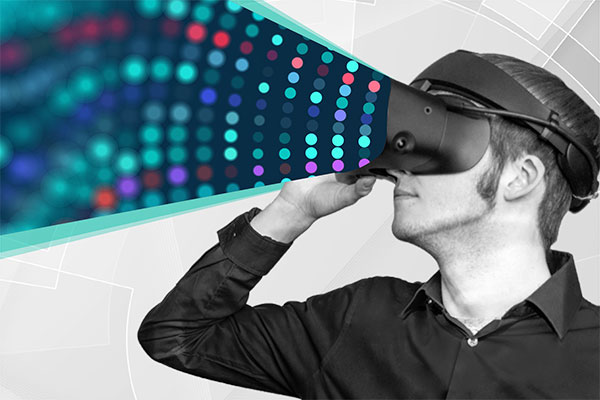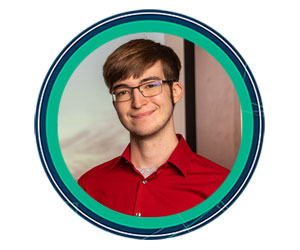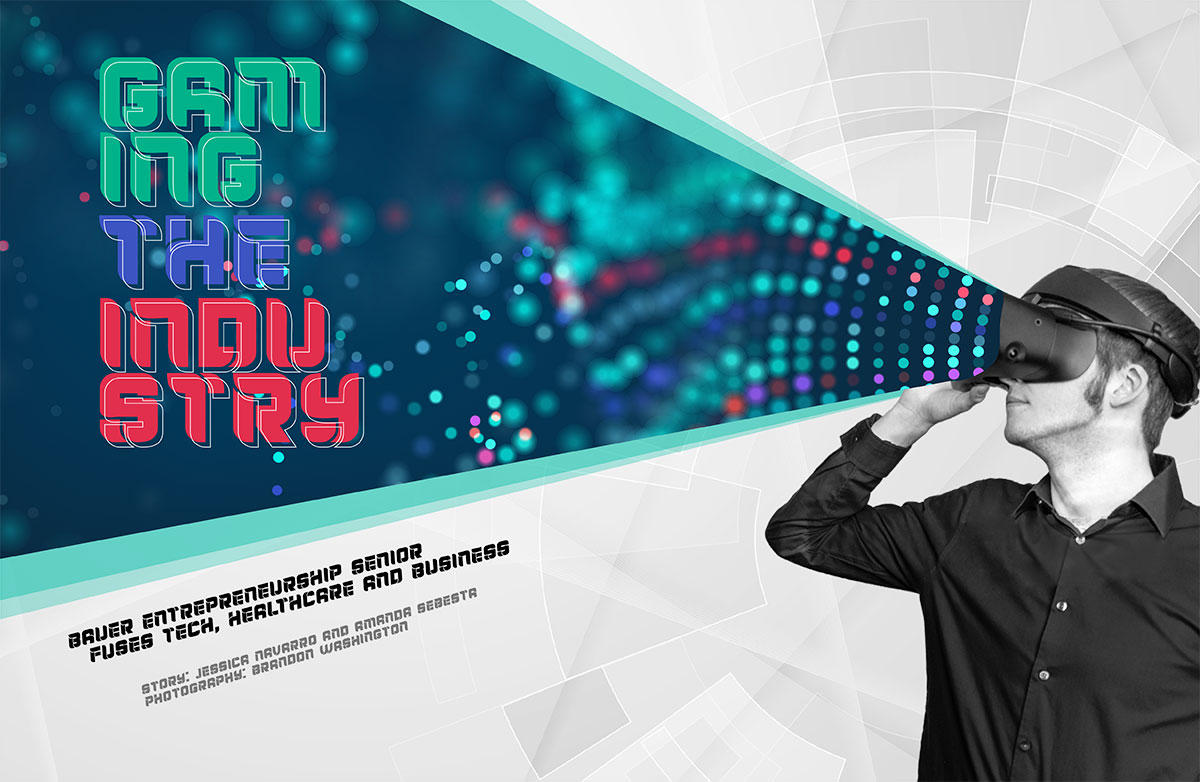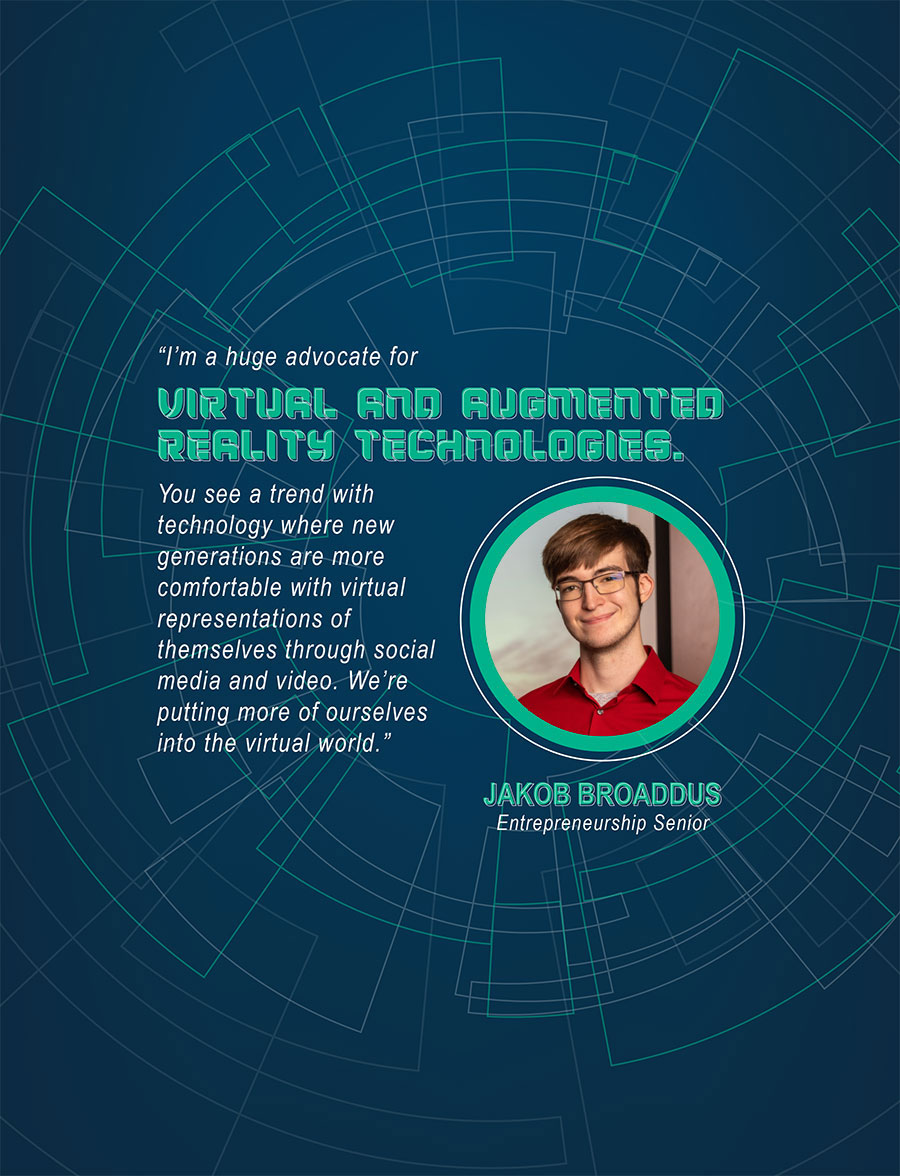Students
Gaming the Industry
Bauer Entrepreneurship Senior Fuses Tech, Healthcare and Business

A Bauer College entrepreneurship student has a novel approach to helping patients with spinal damage retain mobility – video games.
Jakob Broaddus, a student in Bauer College’s Wolff Center for Entrepreneurship, was selected last year to participate in the Healthcare Games Showdown, a streaming competition hosted by Texas Medical Center’s TMC Innovation Institute that wrapped up over the summer. Broaddus was part of an interdisciplinary student team that developed a video game project for Mt. Sinai Health Care Foundation.
“I am interested in games for healthcare for their ability to provide a positive experience for patients, while still being able to improve treatment outcomes,” Broaddus said.
Alongside his teammates, UH student Zale Bush and UT Dallas student Jesse Slater, Broaddus had a month to develop and create a game using “mirror box therapy” to help people regain lower limb mobility.
Mirror box therapy, as Broaddus describes it, is based on studies that if a patient with loss of mobility due to spinal damage can see movement coming from the limbs that cannot move, they will eventually “trick” their brain into regaining mobility in that limb.
I’m a huge advocate for Entrepreneurship Senior JAKOB BROADDUS VIRTUAL AND AUGMENTED REALITY TECHNOLOGIES.
You see a trend with technology where new generations are more comfortable with virtual representations of themselves through social media and video. We’re putting more of ourselves into the virtual world.

JAKOB BROADDUS
Entrepreneurship Senior
“The key to the therapy in this game is that the user has to be able to see their legs moving,” Broaddus said. “By seeing the legs moving, it tricks their brain into thinking their legs are moving, thereby reconnecting the nerves that were damaged.”
Using the principles of mirror box therapy, Broaddus and his teammates developed Kaiju Krusher, a virtual reality game that allows users to play as a “monster” destroying a town, earning points and power-ups along the way.
“Gaming has evolved to be so much more than just games,” Broaddus said. “The industry has sparked a great deal of technological innovation and branching use cases in other industries beyond entertainment. Gamification as a method for incentivizing certain behavior is a tried and true method of getting results in a wide variety of business activities from marketing, sales, management, finance, supply chain, customer service and more. Everyone tends to operate in some kind of system with goals, strategies and incentives. With games, you get to build that system and the rules that govern it.”
Over the course of a month, Broaddus and his teammates, along with other competitors, worked on the project, with weekly livestream episodes documenting their progress. At a final event, the teams presented their prototypes to each organization, with the prospect of a job or internship up for grabs.
Broaddus was selected as best overall project manager in the competition and looks now to support the integration of technology, specifically gaming, and business across the university.
“My biggest takeaway from the Healthcare Games as a whole was more specialized training and mentorship on project management as it directly relates to game development. While I've developed games and worked on projects in the past, they have all been rather scrappy in how we defined goals, organized tasks and set deadlines,” he said. “By working with project management software like Assembla and learning from people who are already in the industry, I've been able to refine these skills and become more effective when it comes executing on a vision we as a team helped define.”
He added: “Leading an interdisciplinary project showed me that you can’t have just one cog on a team, one focus, one skillset. You need different people to get things done.”


